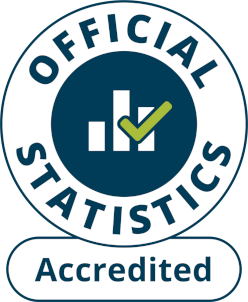Early years foundation stage profile results: 2012 to 2013
Early years foundation stage profile (EYFSP) results in England, for the 2012 to 2013 academic year, at national and local authority level.
Applies to England
Documents
Details
Statistical first release containing national and local authority level results for the early years foundation stage profile (EYFSP) assessments in England for 2013.
The release includes:
- the number and percentage of children achieving at least the expected level in all early learning goals within an area of learning
- the number and percentage achieving each assessment rating within the 17 early learning goals
- the number and percentage achieving a good level of development
The main points from this release are:
- for 2013, 52% of children achieved a good level of development
- more girls achieved a good level of development; 60% girls compared with 44% boys
- the average score achieved on the EYFSP is 32.8 points, just less than 34 points which would be the equivalent of children receiving the expected level across all early learning goals
- the lowest proportion of children achieved at least the expected level in the literacy and mathematics areas of learning; more specifically, the lowest proportion of children achieved the expected level in writing (62%) and numbers (69%)
- in comparison, 88% of children achieved at least the expected level in ‘health and self-care’ and ‘technology’
- 87% achieved at least the expected level in moving and handling
- the categories ‘listening and attention’ and ‘understanding’ had the highest number of children assessed as exceeding, both 19%
- in comparison, 9% of children were recorded as exceeding in the ‘people and communities’ and ‘technology’ early learning goals
The new profile was introduced in September 2012 and the first assessments took place in the summer of 2013. The new profile’s ‘emerging’, ‘expected’ and ‘exceeding’ scale are very different to the previous profile’s 117 point scale and the number of early learning goals has been reduced. This will lead to a break in the time series as the results will not be comparable between 2012 and 2013.
- SFR43/2013: Table 1 - shows the number of pupils achieving each assessment rating in the early learning goals, by gender and local authority
- SFR43/2013: Table 2 - shows the number and percentage of children achieving at least the expected level in the areas of learning, by gender and local authority
- SFR43/2013: Tables A to C and 3 to 6 - contains national and local authority level tables
Chris Noble
01325 735 421
